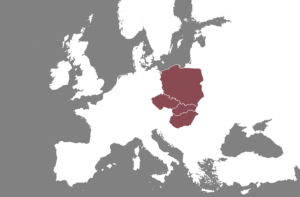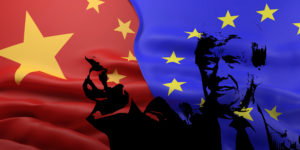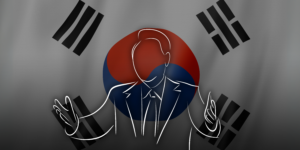Welcome to the 29th issue of the #CEEasia Briefing.
In this issue we dissect the following topics:
- Fudan university in Hungary
- V4 support for Taiwan’s bid to WHA
- NATO-South Korea Cooperation in Cybersecurity
If you like what you see, please forward this message to your friends and colleagues who can subscribe here.
Do you need to know more about East Asia? Don’t hesitate to shoot us a message about custom analysis tailored to your needs.
1. Fudan Referendum Deemed ‘Unconstitutional’
What’s going on? Following their devastating defeat at Hungary’s parliamentary election, the opposition parties suffered yet another blow in their attempts to change Orbán’s China policy. The referendum on Fidesz’s plans to construct a Fudan University campus in Budapest was ruled unconstitutional by the country’s Constitutional Court. This is despite the fact that the referendum question was previously approved by the Supreme Court. The justification provided was that Hungarian law prevents referenda on subjects related to international agreements, such as the one involving Fudan.
In addition… A few days prior to the verdict, the Mayor of Budapest Karácsony, who proposed the referendum question, was fined EUR 1,320 by the National Election Committee for failing to return over 600 signature slips. This came only a few days after Karácsony’s party, Párbeszéd or Dialogue for Hungary, called for a repeal of the law that gave a green light to the Fudan plans.
This means… Following the years of Fidesz’s interference in the country’s judiciary, the decision does not come as a surprise, as the Hungarian courts are frequently accused of serving the interests of the ruling party. More importantly, despite Karácsony’s promise to find a way to “allow the residents of Budapest to have their say in the matter”, it is unlikely that the verdict will be reversed. After all, not only has Orbán and his Fidesz party won another term in office, but the looming embargo of Russian oil at the EU level may force Budapest to strengthen its relations with Beijing. The constitutional decision, which is effectively a ban on the Fudan referendum, has therefore closed the window of opportunity opened by the pre-electoral protests against Fudan and the subsequent support for the United Opposition, which aimed to shift Hungary’s China policy.
Further reading:
SCMP: Top Hungarian court bars referendum on Chinese university plan
Hungary Today: Election Committee Fines Mayor Karácsony for Unreturned Referendum Slips
Hungary Today: Párbeszéd Calls for Withdrawal of Law on Fudan University Campus
2. V4’s Support for Taiwan’s WHA Bid
What’s going on? Taiwan’s bid for its observer status at this year’s World Health Assembly (WHA) meeting has been decidedly lower profile, especially when compared to its 2020 campaign. Still, the international support for Taiwan’s participation is growing. Indeed all foreign ministers of the G7 countries have issued a joint communique supporting Taiwan’s “meaningful participation” for the second time (the first time being in 2021). In addition, several countries have also adopted resolutions supporting Taiwan’s bid, including both Slovakia and the Czech Republic. Moreover, political elites from all the V4 states, as well as Austria, expressed their support in a video made by Taiwan’s representative offices in the five countries. A large number of parliamentarians also expressed their support by signing onto the statement of the Formosa Club, an informal group of European and Canadian lawmakers working to enhance relations with Taiwan.
Going deeper… Besides Taiwan’s world-class healthcare system and a successful track record in COVID-19 pandemic management, a common theme amongst the elite support for Taiwan’s observer status is the island’s help (both financial and material) for Ukraine. In May alone, Taiwan donated USD 1,5 million to charities helping Ukrainian refugees in both the Czech Republic and Hungary, and, following its April donation of USD 250,000 to Bratislava’s Old Town, Taiwan promised to donate further USD 150,000 to the Ukrainian-Slovak Initiative.
This means… Although Taiwan’s bid to join this year’s WHA meeting failed once again, the global support for its international space is rising. This applies to the V4 states, in particular the Czech Republic, Slovakia, and Poland, all of which are now trying to pursue closer relations with Taiwan. One of the most recent examples of this was the visit to Taiwan by the Polish Deputy Minister of Economic Development and Technology, which saw the signing of three MoUs in the areas of R&D, good laboratory practice (GLP), and electric vehicles (EV). Taiwan itself is paying increasing attention to its CEE partners; the Executive Yuan launched the Central and Eastern Europe Investment Fund to promote cooperation in strategic areas such as semiconductors, EVs, and laser optics.
Further reading:
CEIAS: EU-Taiwan Tracker
Taiwan News: Slovakian parliament committee passes resolution backing Taiwan in WHA
Focus Taiwan: Czech FM thanks Taiwan over US$1.5 million donation to help Ukraine
3. NATO-South Korea Cooperation in Cybersecurity
What’s going on? On 5th May, South Korea became the second East Asian country, following Japan, to join the NATO Cooperative Cyber Defence Centre of Excellence in Tallinn, Estonia. The center focuses on research in the field of cyber defense and training and education in technology, cyber defense strategy, and law. South Korea, which is a strategically important actor in the CEE, is thus strengthening its importance in the region by expanding its scope beyond trade to strategic and defense cooperation. Moreover, South Korea’s entry is perceived positively by NATO countries, as it is a player with significant cyber potential thanks to Korean technology giants such as Samsung and LG.
Going deeper… South Korea has become the fifth contributing non-NATO nation to be admitted to the Centre. Despite its great potential to enter the global stage on cyber security issues, the country has long remained secluded. It did not release its cybersecurity strategy until 2019 when the republic was the target of cyberattacks from China and North Korea.
This means… In recent years, South Korea has sought to strengthen its position in the CEE region, and not just as a source of FDI. This is evidenced by its interest in cooperation in the fields of defense and nuclear energy, or its current involvement in cooperation in cyber security. Moreover, the Centre provides a stable and seemingly neutral platform for developing cooperation between Japan and South Korea, which has been weakened by ongoing disputes between the two. In fact, this has previously prevented the US from launching cooperation between its two key partners in the Pacific and led to a situation in which South Korea refused to share intelligence with Japan.
Further reading:
CISOMAG: Japan Joins NATO’s Cooperative Cyber Defense Centre of Excellence
InfoSecurity: NATO a Južná Kórea prehlbujú spoluprácu v kyberbezpečnosti
Time: South Korea’s Intelligence Agency Has Joined NATO’s Cyber Defense Unit. China Isn’t Happy







